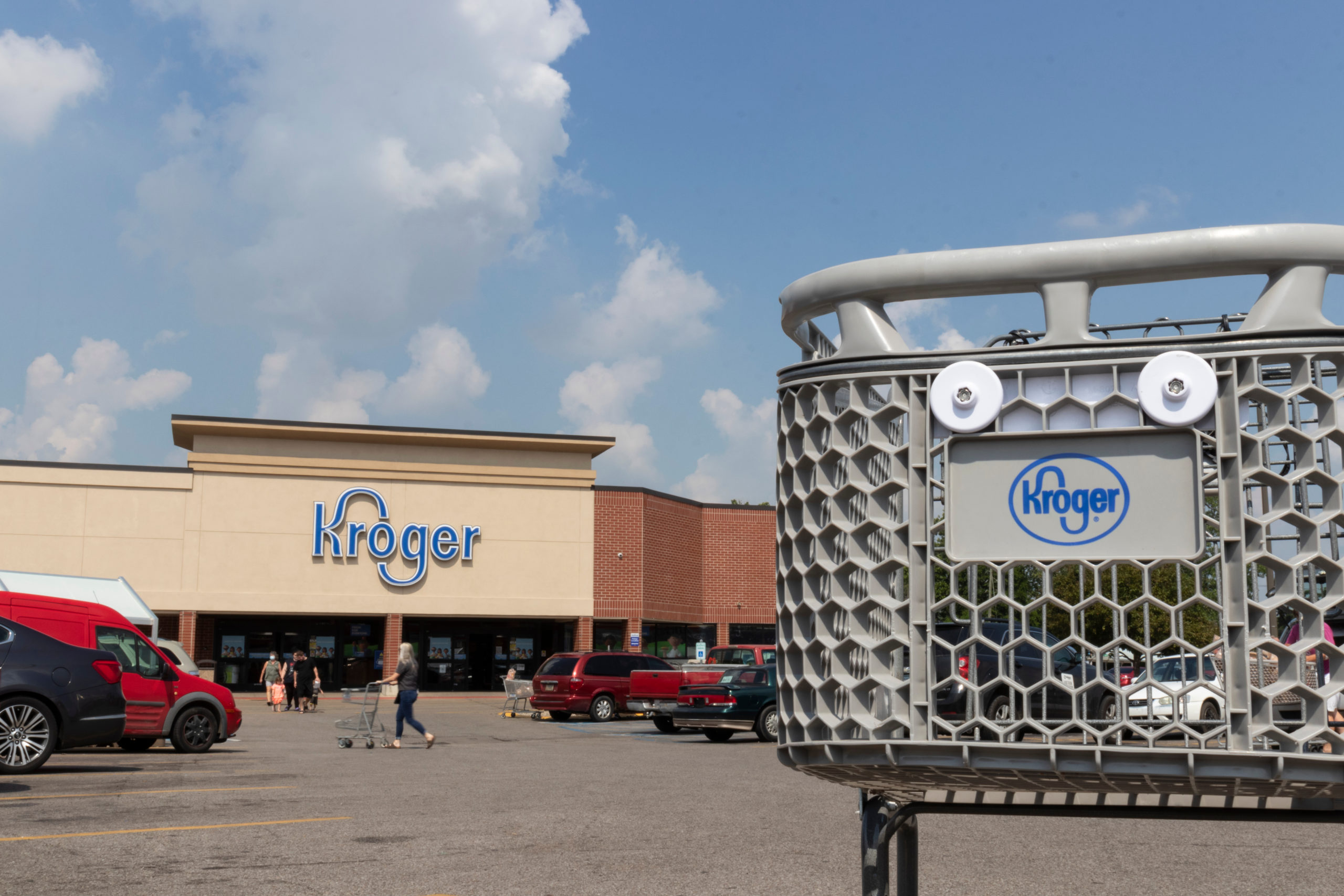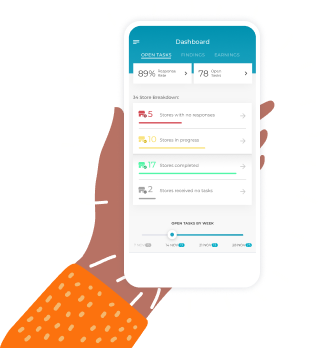Customer delight on aisle three! The Kroger Co., the Cincinnati-based, largest pure-play supermarket chain in the country, had more than 2,750 stores as of early 2020. Despite its reach, however, the chain has also been known for something else: being a consumer favorite in the food retail industry. As with other large chains, that may start with familiarity and lower prices due to distribution networks. But there are a number of other ways Kroger ensures customers stock up on satisfaction.
True Omnichannel Excellence
The ability to provide a true omnichannel experience has never been more important than in 2020. Kroger had already been making strides before the pandemic hit. As part of a significant transformation, Kroger promised that, by the end of 2019, everyone in America would be able to shop Kroger online or offline. By summer of that year, 1,581 of the company’s stores already offered online grocery ordering and pickup. Partnering with Instacart added another 1,600. Then there’s Kroger Ship, its own online service, offering home delivery.
The results are already evident. Grocery Dive reports that Kroger’s digital sales grew 92 percent during the first quarter of 2020, “as many safety-conscious shoppers opted to get their groceries delivered to their homes and cars.” Kroger further inspired shopper engagement by waiving fees for its pickup service and adding delivery and store pickup slots.
Beloved Private Label Brands
Long gone are the days when private label brands in the food retail industry were considered just a lower-cost option. Kroger offers a variety of brands available only at their stores, driving both loyalty and sales. On the list: clearly defined brands such as Private Selection, Simple Truth, HemisFares, Kroger, Home Chef, Murray’s Cheese and more. Beyond food and fresh items, there also are private label brands for baby, pets, home and office.
In 2019, Kroger’s Our Brands division introduced 758 new items and exceeded $23.1 billion in sales. Leading natural and organic brand Simple Truth accounted for more than $2.5 billion of that; in keeping with food retail industry trends, Kroger has recently grown its Simple Truth plant-based line by more than 50 new items, including products like dairy-free cheese, plant-based meats, oat milk ice cream and cauliflower dips. The food retail industry overall has seen growth in private brands thanks to COVID; in some cases, it’s been about availability and in others, about cost.
Seamless Checkout
Frictionless self-checkout is a no-brainer when it comes to reducing shopper frustrations in the food retail industry—especially when COVID-era consumers desire to keep things easy, fast and without a lot of contact. A study released in April showed that 87 percent of shoppers prefer to shop in store with touchless or self-checkout options.
Back in 2018, Kroger greatly expanded its Scan, Bag, Go shopping technology, allowing consumers to use either a handheld scanner or an app downloaded to their phone to scan and bag products as they shopped. The technology was designed by Kroger’s in-house research and development team.
More recently, Kroger partnered with visual artificial intelligence company Everseen to transform the customer experience in other ways. “Everseen aims to minimize moments of friction that customers encounter during checkout,” reports Progressive Grocer. “The company’s solution seeks to reduce errors that customers occasionally experience at self-checkout, enabling them to correct those errors themselves, and leading in turn to a better customer experience and higher employee efficiency.” Another win: helping remove controllable costs from the business, which can then be redirected to improving the customer experience even further, Kroger VP of asset protection Mike Lamb told the publication.
Emphasis on Fresh
At Kroger, “fresh” is more than just a vague concept. In 2019, it became part of the company’s tagline: Fresh for Everyone. It speaks to the company’s efforts to provide access to “fresh, affordable and delicious food.” The mindset extends to other stores under the Kroger Family of Companies, too, such as Mariano’s and Harris Teeter. Mariano’s has used shopper data to inform its product mix and offerings, resulting in efforts like an organic-only salad bar and a variety of self-serve prepared food stations. The outcome, however, was the creation of a place that can (in non-COVID times) be as much destination as grocery store. Kroger-owned QFC stores in Seattle began selling produce from in-store farm InFarm in late 2019. InFarm, based in Germany, has offered leafy greens, herbs and vegetables in hundreds of European stores. The QFC arrangement marked its U.S. debut.
Then there’s the idea of fresh partnerships along with the freshly-made food. In late 2019, Kroger announced a collaboration with Hungarian hotdog restaurant chain Tony Packo’s. The restaurant has opened two limited-menu Packo’s Express locations in Ohio Kroger stores this year. Kroger has also been home to the popular Rapid Fired Pizza chain. Further, the downtown Cincinnati flagship store, Kroger on the Rhine, opened in the fall of 2019 with a five-restaurant food hall. The hall is a differentiator for the company in a variety of ways: It not only is the first food hall for Kroger; it also is the first food hall in the Cincinnati downtown area. In this way, Kroger once again earns points for being novel and creative.
Commitment to Community
In the midst of the COVID-19 pandemic, Kroger has been at the forefront in the food retail industry with its efforts in testing. The Wise Marketer lauded Kroger’s approach in a piece about altruism during the pandemic, noting it had expanded testing to more than 220 clinic locations, as well as had plans to launch an employer health and wellness program that would expedite employee testing. COVIDCare Plus sources employers with Kroger Health’s COVID-19 Test Home Collection Kits, including virtual assistance from healthcare professionals. Kroger began offering free coronavirus tests to frontline workers in May, and in October, became the nation’s first retailer to offer antibody tests to customers.
Kroger has also stepped up to the plate in issues of diversity and inclusion. It unveiled its Framework for Action: Diversity, Equity & Inclusion initiative in October. The effort includes five areas of focus: “creating a more inclusive culture, developing diverse talent, advancing diverse partnership, advancing equitable communities, and deeply listening and reporting on progress,” says Supermarket News.
Recent reports show that consumers have heightened awareness about how businesses are interacting with stakeholders, their communities and others overall. And since food is something we all need, it offers a unique opportunity for shared experience, perhaps a continuation of that early, ubiquitous refrain that “we’re all in this together.”
Naturally, it’s anyone’s guess how the pandemic will play out, and what food retail industry initiatives will stick long-term. But if past efforts are any indication, it’s a safe bet that Kroger will continue seeking out fresh strategies for delighting customers.
There’s sure to be a feast.
—
The main ingredient for delighting grocery shoppers sounds simple, but isn’t—making the products they want available and ready-to-purchase. CB4 helps innovators in the food retail industry, from Lidl to Wakefern, do that by applying advanced machine learning and AI to their basic POS data and then sending store managers after the opportunities that matter most. Watch how Associated Food Stores got up and running across their chain in under a week. Or watch a short demo about what CB4 can do for you.




